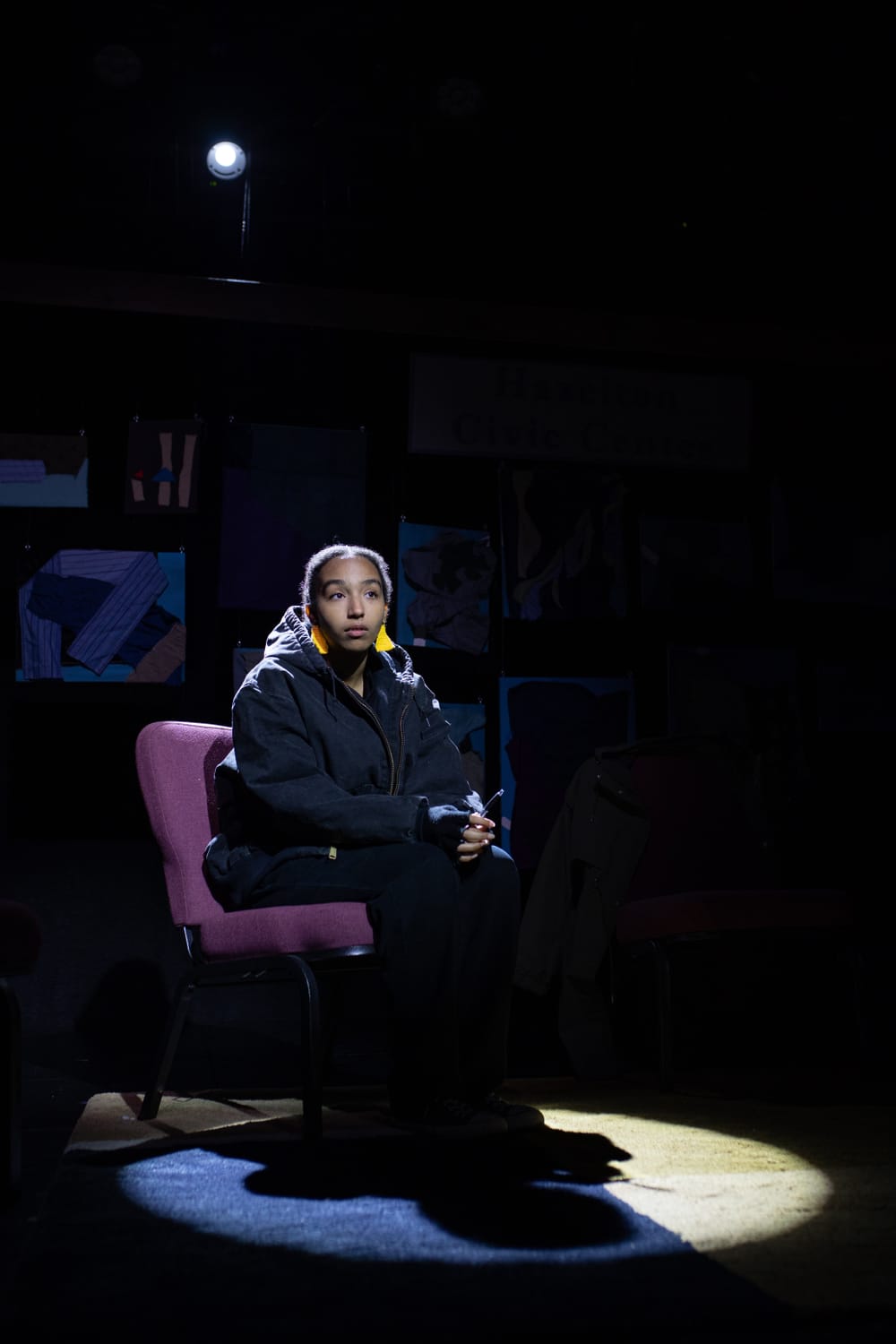Stay in the Loop
BSR publishes on a weekly schedule, with an email newsletter every Wednesday and Thursday morning. There’s no paywall, and subscribing is always free.
Having a lot of character
The Strides Collective presents Matt Shvyrkov’s Confabulation

Confabulation, now in its world premiere with the Strides Collective, is a cryptic kind of play. It takes a few introductions, literally speaking, to fully reveal itself, and even then, its subsequent layers seem designed to obfuscate as much as to illuminate.
All new episodes
Written by Matt Shvyrkov and directed by Jonathan Edmondson, the play first introduces us to a past-life regression support group overseen by the eccentric Agnes (Kathryn Wylde), a pseudotherapeutic practice with the goal of unlocking the previous incarnations of its subjects. The group’s newest member, Caroline (Journee Lutz), has joined in the aftermath of a bad breakup and a psychologically abusive childhood, hoping to apprehend what she believes is an innate darkness. It’s the first piece of an intriguing puzzle, developing into a series of tender portraits of its central misfits when it's not struggling against its elliptical ambiguity.
Where the play really works is on a scene-by-scene basis, its episodes handsomely scripted and vibrantly performed. Shvyrkov excels at the pop-up scene, by which I mean the swift establishment and escalation of a dramatic sequence. A sense of circumstance is given with only the necessary telling details (the troubled friendship, the frustrated romance); it is precisely heightened to the point of eruption.
The cast does fine work with these episodes, molding their characters in deliberately stereotypical fashion before chiseling into the minutiae. Lutz imbues Caroline with a quiet incisiveness, in a constant search for answers, as if her traumas are questions to be solved. Raven Jane Adilene is endearingly bubbly as Olivia, much too big for her stiflingly small hometown, and Triston Haq plays Shane, a sexually frustrated loner who can only achieve an erection in a cowboy costume, as an open wound. Rain Diaz, as Grant, emerges as the standout of his cohort: your typically frat-ish trust-fund accountant on probation for assault, trying to appear unbothered but practically sweating out his sublimated rage and desire.
Compounding problems
The play doesn’t coalesce, though, on a larger scale, frustrated by a conceptual muddiness. (It’s also difficult to discuss without getting into the details, so spoilers ahead.) Twice in the show, in an echo of the opening, we are reintroduced to each character. Their names are the same, the details slightly shifted. Costumes change; sexualities morph; some characters, previously unintroduced, are assimilated into others. Light spoiler: one character becomes another’s ex, and another becomes the abusive mother.
The precise nature of these transformations is made deliberately oblique. These wouldn’t seem to be the past-life regressions of which Agnes speaks, but the cultish costumes and neon lighting (costumes by Gen McLaughlin, lights by Kate Ingram) suggest them as an experimental product of the therapy. Nor is it clear if these are productions of Caroline’s mind alone, as the revamping of Olivia and Agnes would seem to indicate, or if this is a group psychosis.
These aren’t questions that the play must answer, mind you. In fact, their contradictions can, and sometimes do, amount to a ripe ambiguity that deepens the characters’ mental struggles. The play’s best scene, in which Grant confronts Shane (now regenerated as the man he assaulted), is lent an enigmatic sheen when Grant receives information that contradicts his memories. We are left to wonder how much of this scene, so emotionally full, has been conjured by his tortured subconscious.
More often than not, though, this assimilation of characters is sloppy, yielding dramatic imprecision. Agnes, particularly, falls victim to her radical changes: first an Eastern European psychobabbler, then a bleach blonde valley girl, and then, finally, Caroline’s mom. Wylde, as Agnes, can’t quite solve the part. The play doesn’t seem to know how much of her character is retained from version to version, so she winds up as a half-baked idea. Her final confrontation with Caroline is emblematic of this tension, the play’s surreal structure at odds with the traditional dramatization at which Shvyrkov is so practiced.
Even when it shines, Confabulation seems a play itself haunted by past lives. It slips, like its characters, into different versions of itself: shards of stories that frequently resonate but which never quite jigsaw into a cohesive whole.
At top: Journee Lutz as Caroline in the Strides Collective’s production of Confabulation. (Photo by Austin Berner.)
What, When, Where
Confabulation. By Matt Shvyrkov, directed by Jonathan Edmondson. $25. Through October 20, 2024, at the Hamilton Family Arts Center at Arden Theatre Company, 62 N 2nd Street, Philadelphia. stridescollective.com.
Accessibility
The Arden is an ADA-compliant venue.
Sign up for our newsletter
All of the week's new articles, all in one place. Sign up for the free weekly BSR newsletters, and don't miss a conversation.

 Kiran Pandey
Kiran Pandey